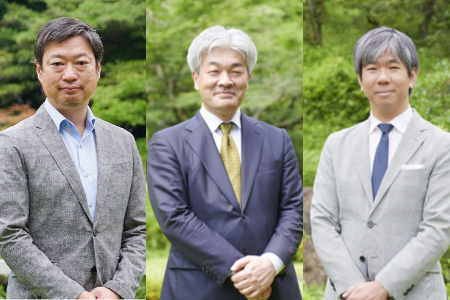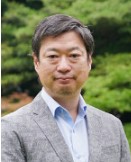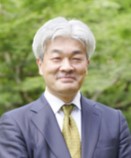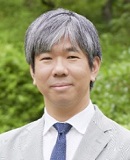“API Geoeconomic Briefing” is a weekly analysis of significant geopolitical and geoeconomic developments that precede the post-pandemic world. The briefing is written by experts at Asia Pacific Initiative (API) and includes an assessment of burgeoning trends in international politics and economics and the possible impact on Japan’s national interests and strategic response. (Editor-in-chief: Dr. HOSOYA Yuichi, Research Director, API; Professor, Faculty of Law, Keio University; Visiting Fellow, Downing College, University of Cambridge)
This article was posted to the Japan Times on July 19, 2022:
API Geoeconomic Briefing

July 19, 2022
Will the war in Ukraine change the international order?
|
Managing Director (Representative Director), International House of Japan |
Director, Institute of Geoeconomics (IOG) |
Director, International House of Japan |
KS: Since we are having this discussion to commemorate the 10th anniversary of the API, let’s briefly look back at its history. In your view, what kind of a think tank is it, what has it accomplished and what kind of changes has it brought to society?
Independence and assessment
YH: API has two key characteristics. The first is that it is independent. Mainstream think tanks in Japan — including the National Institute for Defense Studies, the Japan Institute of International Affairs and the Research Institute of Economy, Trade and Industry — are usually affiliated with government ministries.
However, the API has consistently put out its own opinions without receiving subsidies from the government.
Secondly, it has assessed government policies on such issues as the Fukushima nuclear disaster and the COVID-19 pandemic.
This was due to API founder Yoichi Funabashi’s strong intentions, and I believe that the API was able to make assessments perceived by society as trustworthy because of its independence.
KJ: I have participated in five projects in two areas in the 10-year history of the think tank — initially the Rebuild Japan Initiative Foundation (RJIF) and later succeeded by the API.
The first focal area was Japan’s grand strategy. In 2013, the think tank launched a project to review Japan’s national security strategy and released policy recommendations titled “Quiet Deterrence.”
A group was formed from the project to discuss geoeconomics in today’s Japan and the results of the discussion were compiled into a book, “Geopolitics in Contemporary Japan — 13 risks and the era of geoeconomics.”
The second focal area was public policy review. The API’s review methods — assessments through comprehensive interviews with policy circles — are quite unique in evaluating the achievements and failures of public policy.
It was a precious experience for me to have been involved in the assessment of the three years and three months of the Democratic Party of Japan’s administration (2009-2012), which was made into a book, “The Democratic Party of Japan in Power: Challenges and Failures,” and the assessment of the seven years and eight months of Prime Minister Shinzo Abe’s second administration (2012-2020), compiled into a book, “The Critical Review of the Abe Administration: Politics of Conservatism and Realism.”
We conducted interviews with 27 government officials in assessing the DPJ administration, and with 54 officials in assessing the Abe administration.
The projects were supported by Dr. Funabashi’s strong leadership, and I was impressed with his intensity in calling up officials and getting interview appointments.
The high quality of the projects was also made possible by research assistants and interns at the API who collected materials and made other preparations. It was indeed a group achievement.
KS: I took part in the assessment of the Fukushima incident, which led to the establishment of the RJIF, the predecessor of the API. I believe that a number of assessments mentioned already were among the greatest contributions the API made to society.
In Japan, many proposals are made following accidents and incidents, but there are no systems in place to assess them. Even in parliament, lawmakers focus much on the Budget Committee, which stands out the most, but little attention is paid to the Audit Committee.
However, it is extremely important to assess whether proposals are put into practice.
Last year, the API launched the 10-year Investigation Commission on the Fukushima Nuclear Accident — the initial reviewing of the incident had been the starting point of this think tank — and I chaired the commission.
Another important achievement by the API was the grand strategy, which Mr. Jimbo had been involved in.
People tend to expect think tanks to come up with prescriptions for specific policies, but only discussing specific policies will not lead to overall optimization for the future of Japan.
In this sense, I think the API played a role in offering a grand strategy that does not focus on partial optimization but on total optimization.
Conflict between differing orders
KS: Regarding Russia’s invasion of Ukraine, there is yet to be a fixed term to describe it, but here we would like to call it the Russia-Ukraine war.
Even four months after the war started, we still can’t figure out how it will turn out.
In such a situation, it is difficult to think how the international order will be reshaped after the end of the war, but today we are going to give it a try.
First, I would like to ask what characterizes this war. Is it just an issue of Russia going out of control? Or is it an outcome of the changing international order?
Russia is a permanent member of the U.N. Security Council and possesses the largest stockpile of nuclear warheads in the world.
Did Russia go out of control and was it able to start the war without any constraint because it is a nuclear superpower?
Or should we take it as a consequence of the global community failing to intervene because the international order had changed and destabilized, including the decline of the United States and the rise of China?
How do you see the situation as a historian, Dr. Hosoya?
YH: I see the ongoing war basically as a conflict between two visions for the international order.
The first one is a 19th-century-type of international order led by great powers, a vision sought by Russian President Vladimir Putin.
“In order to claim some kind of leadership, particularly global leadership, any country, any nation, any ethnic group needs to ensure its sovereignty,” Putin said in June. “The reason is that there is no middle way between being a sovereign country and a colony, no matter what you call a colony.
“If a country or a group of countries is unable to make sovereign decisions, it means that it already is a colony to a certain extent.”
His remarks indicate that he believes a sovereign country is a one that owns nuclear weapons and the right to self-determination.
I think that in this context, he means that nonnuclear-weapon states — be it Ukraine, Poland or Japan — cannot make decisions themselves and should come under the rule of great powers like Russia, the U.S. and China.
Such a way of thinking is a typical idea of a 19th-century-type international order controlled by major powers.
From the late 18th century through the 19th century, Poland was divided three times by major powers. And Russia is trying to divide Ukraine in the same way. We should never allow that to happen.
The second notion of an international order is one based on the rule of law, something sought by Japan, the United Kingdom and the European Union. The Japanese government has often been advocating such an international order.
I believe the latest war represents a conflict between these two orders.
If Russia wins the war, the international order will be forced to change. The existing international order based on the rule of law will become dysfunctional and will be a world of power politics led by great powers.
The world could change to be one in which countries’ rankings and right to self-determination are determined by the number of nuclear weapons they own.
Meanwhile, if Russia’s ambitions can be crushed, there could be an opportunity to maintain the rules-based international order to some extent, or even enhance it.
So my view is that we should not regard this war as a war between Russia and Ukraine, something unrelated to us. Japan must be actively engaged.
This doesn’t mean Japan should get involved in military operations, but in forming the future international order.
If the international order changes to something led by nuclear weapons states, Japan, which does not possess nuclear weapons, will suffer the most disadvantages. I hope such an understanding will spread more within Japan.
Power vacuum
KJ: States live in a “self-help” world, and something like a so-called world government or a single political authority for all humanity does not exist in reality.
That is why it is desirable to form order through international laws, systems and rules. But in order to maintain order, it is necessary to support it with a power that can prevent violations of rules and punish countries that break the rules.
In that sense, I think the question of why this war broke out can be interpreted as a question of whether systems or powers that can strongly penalize acts of aggression existed.
Since Ukraine is not a NATO member, NATO countries including the U.S. don’t have obligations under the treaty to defend it.
In 1994, the U.S., the U.K. and Russia signed the Budapest Memorandum assuring the security of Ukraine, but the meaning of the security assurances was deliberately left ambiguous in the memorandum and it did not serve to prevent the latest war.
So we have to start the discussion from the point that there was a vacuum of order in Ukraine and the country was vulnerable.
Despite that, I believe Ukraine’s security had been barely supported in the past by a combination of Russia’s hopes that the issues concerning Ukraine could be resolved politically and NATO members’ strategic ambiguity that left the possibility of military engagement open.
However, Russia’s hopes for a political settlement receded following the Euro-Maidan Revolution in Ukraine and Russia’s annexation of Crimea in 2014.
And I think the order collapsed because Russia had been convinced that the U.S. would not conduct direct military interventions in Ukraine and judged the merits of invading the country would be bigger than the penalties that would be imposed by the international community.
KS: After Donald Trump became U.S. president with his America First policy, the U.S. made clear its stance of not actively engaging in issues related to the international community, including the situation in Afghanistan.
This strategic ambiguity led Russia to wonder about the U.S. response if it took military actions. The U.S. retreat from international affairs consequently widened freedom for Russia’s actions.
If Russia wins the war, the rule of law and international law that served as a basis of international order until now will become dysfunctional. I think our world is facing the danger of becoming a lawless zone where problems can be settled only by force.
Designed not to be functional
KS: In thinking about creating an international order for the future, how should international law or international institutions — the United Nations in particular — change?
The U.N. is regarded as dysfunctional since it failed to stop Russia going out of control.
However, as long as the Security Council’s permanent members hold veto power, the U.N. includes a feature of not being able to take action.
The U.N. was founded on the premise that there would be no battles among the permanent members that fought World War II together as the Allied Powers.
In forming a new international order, including reforming the U.N. or creating a new international institution, what kind of a role should the U.N. play in building rule of law? I would like to first ask Dr. Hosoya, who has been researching the origins of the creation of the U.N.
YH: The way I put it might cause misunderstanding, but the U.N. was, in the first place, designed on the premise that it would not function perfectly.
British diplomats such as Gladwyn Jebb, who served as the acting secretary-general when the U.N. was being founded, and Alexander Cadogan, then-U.K. permanent under-secretary for foreign affairs, took a cooperative stance with the Soviet Union from the beginning.
Thus they designed the U.N. Charter to prepare for and supplement cases in which cooperation among great powers in the Security Council failed to function, as can be seen in Article 51, which allowed countries to maintain multilateral security arrangements in the form of collective self-defense, and Article 52, which states members shall settle local disputes through regional arrangements.
In other words, the U.N. was created under the assumption that it would function to some extent but would not when there were conflicting interests among major powers.
There were times after the end of the Cold War when people had excessive expectations for the U.N., but now the organization is gradually returning to being an initial, low-profile institution that doesn’t function so effectively.
Nevertheless, we must avoid a situation in which the U.N. collapses completely, like the League of Nations did in the 1930s.
For instance, if China or Russia secedes from the U.N. like how Japan withdrew from the League of Nations, the U.N. will come apart.
Therefore, it is necessary to utilize the U.N., although keeping a low profile, to avoid it from collapsing.
Specifically, the U.N. system should be complemented by military arrangements, including NATO and the U.S.-Japan alliance, to let Russia and China understand that confrontations that lead to the collapse of the U.N. are detrimental.
At the same time, countries like the U.S., the U.K. and Japan should consistently play a significant role in the U.N. to some extent.
I think it is important to understand and utilize the U.N. in such a way as a low-profile institution.
Litmus test
KJ: The U.N. Charter is designed to take enforcement actions against threats to international peace and security.
The Security Council was expected to play the role of authorizing U.N. members to take all necessary measures, including the use of force.
The Security Council gave a legal authorization for the 1991 Gulf War, adopting a resolution that empowered member states to use all necessary means to restore the sovereignty of Kuwait following invasion by Iraq.
Following the terror attacks against the U.S. on Sept. 11, 2001, the Security Council adopted a resolution reaffirming the U.S.’ right of individual or collective self-defense and the need “to combat by all means.”
However, in the case of Russia’s invasion of Ukraine, it was logically impossible for the Security Council to function effectively because the invasion had been conducted by one of its permanent members.
In an era of a return of competition between superpowers like today, we can’t expect the U.N. to play an authoritative role of granting rights and legitimacy to member states.
But this doesn’t mean we should particularly focus on the dysfunctionality of the U.N. and regard it as unnecessary.
The U.N. had its role to play in the wake of Russia’s invasion of Ukraine, serving as a litmus test to check policy judgments made by its member states.
As can be seen in the resolution adopted at the General Assembly condemning Russia for invading Ukraine, only the U.N. can offer chances for states to make clear to the rest of the world their stance on issues in three ways — voting in favor of resolutions, voting against them or abstaining.
KS: In a situation in which major powers compete, with China and Russia confronting the U.S. and other Western countries, there is no doubt that it is impossible for the U.N. system to control the world.
Despite the fact, Japan continues to have high hopes for the U.N., ignoring the realities of the institution and failing to have a correct understanding of what it can do.
To put it differently, Japan has such high expectations for the U.N. that it is excessively disappointed by the institution not functioning properly.
It is also true that the U.N.’s functions remain to a certain extent in the form of authorizing necessary actions against threats and adopting resolutions condemning invasions.
Such moves were made possible because the U.N. has as its members almost all states in the world including China and Russia.
If China and Russia withdraw from the U.N., its legitimacy will be lost and it will become like NATO or OECD, international organizations excluding those countries.
It is extremely important that there exists a forum — although comprising various problems — where even those with hostile relationships in the global community can gather and take part in discussions.
Disclaimer: The views expressed in this API Geoeconomic Briefing do not necessarily reflect those of the API, the API Institute of Geoeconomic Studies or any other organizations to which the author belongs.
 APIニュースレター 登録
APIニュースレター 登録

